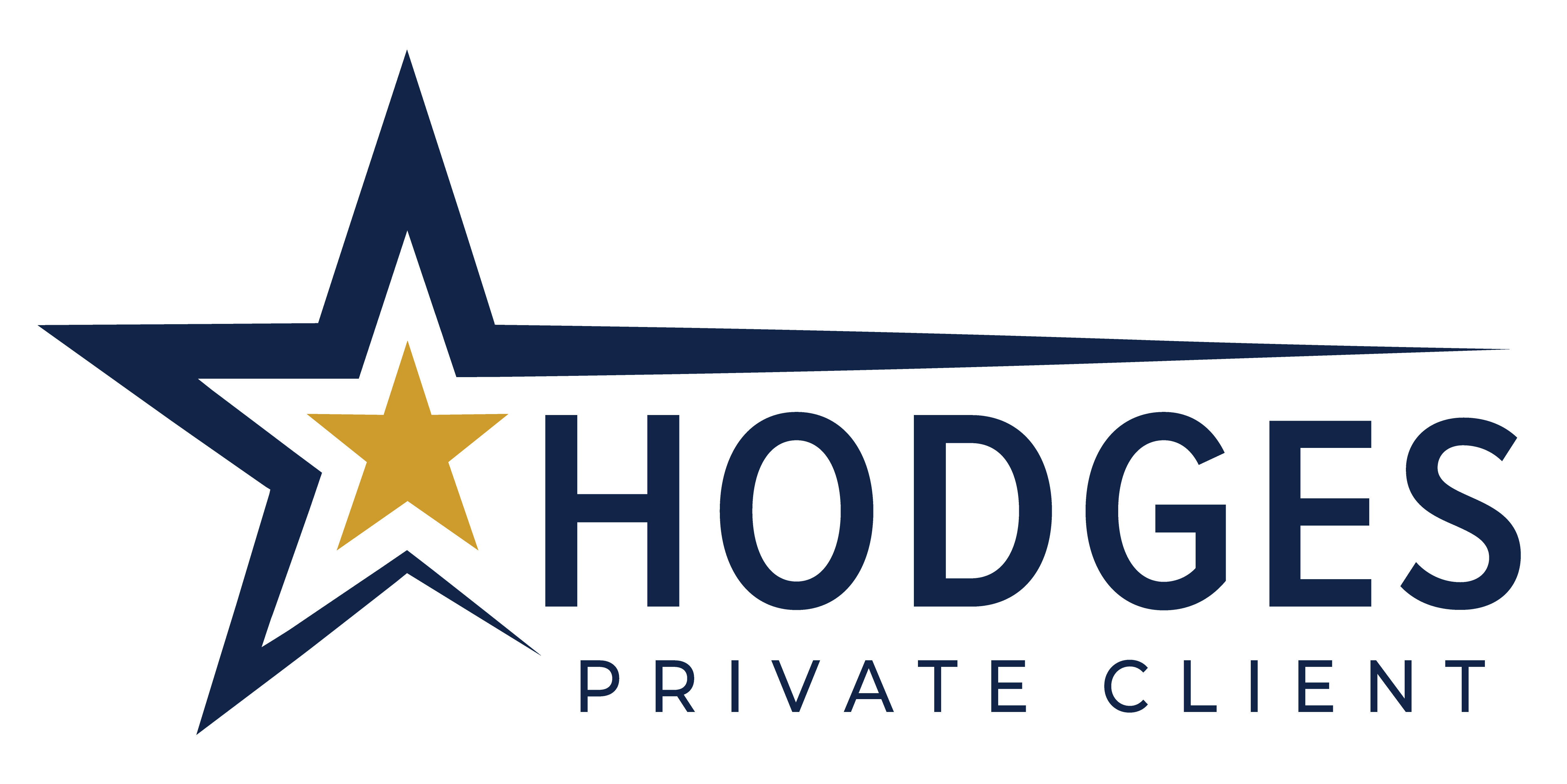The Narrowing Tunnel to Retirement
by Hodges Private Client Team, on Nov 11, 2021
When your finances move from the periphery to the forefront
At some point there’s a little alarm bell that goes off in our heads awakening us to something that we know is there, yet to which we have not paid close attention. Sometimes the bell rings at 50, sometimes at 60, and sometimes when we’re about 12mos away from retirement. It truly just depends on the person. And what, exactly, is this alarm triggering you might ask? Answer: Getting our financial lives in order so that we’re in shape for retirement or have a better handle on the right time to do so. There’s a time in our lives when the money, that has existed in our periphery for years or decades, shifts to the front and center. We owe it to ourselves to make sure we’re on the right track.
So, why do most of us procrastinate about going through this process? Afterall, finance is so simple, right? Discussions filled with strange words, numbers, percentages, and large sums of money. Usually one spouse has zero interest, so it falls on the other’s lap. Never mind that this discussion would probably involve a financial advisor, and lord only knows how I’d ever go about finding one of those, let alone trust them? (Thanks for reading…we’d love to be of service). So, I’ll just find a myriad of other tasks to cross off my never-ending “To Do List” and kick the personal finance can down the road. Does that sound about right? Ah, the human element of procrastination is so present in all of us.
So, how do we get in gear and go through a financial review. I highly suggest you do this sooner than later, because there might be options available of which you should be aware. Here are a few of the most typical.
#1: I’ve gone through a job change, my 401k balance is very high, and I don’t know if I should roll it to my new employer’s 401k or do something else. What are my options?
Answer: When you terminate your employment and subsequent participation in an employer-sponsored 401k plan, you have 4 options available to you:*
- Leave the money in your former employer's plan, if permitted
- Rollover the assets to your new employer's plan, if one is available and rollovers are permitted
- Rollover to an Individual Retirement Account (IRA) or Roth IRA
- Cash out the account value**
Each of these options would be worthwhile to explore, because knowing what is available is part of educating yourself. One of the benefits of rolling out of a 401k plan is that you are now free to choose how you would like to manage your account. You could do it yourself or hire an advisor. I’ve found that when balances get larger, folks tend to start to second guess their own abilities, or just get more nervous in general. This might be the point at which it does make sense to work with an advisor.
#2: I’m with my same employer, but like in #1, my balances are now large, and I might need more advice than what my 401k plan provides. What can I do?
Answer: Investigate an in-service 401k rollover. You keep your 401k open, but you move a certain amount into an IRA. No taxes will be incurred by doing this. The age at which you can do this and the amount that you can rollover depends on how your plan is set up. Make a call to your HR department and ask them the following: Do we allow for in-service rollovers on our 401k, at what age can I do this, and what amount (it will either be the full amount or some % of the total).
#3: I’ve now worked for several different companies and have 3 different 401ks, each of which are still with my old employer. What can I do?
Answer: Some companies allow you to stay in their plan indefinitely even if you are an ex-employee (it’s becoming rarer, but it still happens). Perhaps consolidating all three into some form of an IRA would be an option and a way for you to see everything in one spot?
#4: All my account balances are now large, and I’m losing sleep over those extra zeros. I don’t want to screw this up!
Answer: You’re not alone with these feelings. The closer we get to retirement and the larger those account balances happen to be, the more anxiety it can cause.
Why should a person go through these motions earlier than later? The best answer is TIME. If you need to course correct, the earlier this is done, the better the end result should be. The closer you get to retirement, course corrections have less of an impact than if they were made earlier. Another reason is to make sure everything is working for your benefit in the right direction. Consolidating various 401ks and IRAs might be the logical next step? Get them all in one place so you have a better picture of what you have. There is no time like the present. Next to your personal health and your family, money matters are probably 3rd on the list. So why drag your feet on the 3rd most important item in your life?
You might have established some of these accounts in your 20s and selected investments within them that were great for the last 30 years but need to be tweaked now. Conversely, you might have played it too conservatively early on, and not received the type of return needed to grow your money in the appropriate fashion. I’ll give you an example. Let’s say that the market had a down year when you established your 401k, and that spooked you a bit as to how you should pick your investments. Maybe you played it really safe with your choices. Now, several months pass by, and you forgot what you picked. Then years go by, you never made an adjustment, and the market had some really good years in the interim. In this case, you missed out on growing your balances. Sadly, with most 401ks, you are on your own in steering your investments, and often times miscalculations could be made.
So, put it on the calendar, and do it! No time is better than now. I actually think people get way too worked up over it, and it really isn’t very hard. Gather up all your investment accounts. Yes, I realize you’ll need to search for your 401k log-in and password (I told you I’ve been doing this for a long time, wink). Then schedule a time to talk with us, and we can walk through your financial life in about 30 minutes.
You’ll feel relieved that you’ve done this and I’ve yet to meet a person that ever felt this to be a waste of time. We look forward to talking with you.
* Factors for Consideration
There are numerous factors that must be considered when considering a roll over from plan assets to an IRA rather than keeping the assets in the previous employer’s plan or rolling over to a new employer’s plan. Some of the items to consider are as follows:
Investment Options
An IRA often enables an investor to select from a broader range of investment options than a plan. The importance of this factor will depend in part on how satisfied the investor is with the options available under the plan under consideration.
Fees and Expenses
Both plans and IRAs typically involve (i) investment-related expenses and (ii) plan or account fees. Investment-related expenses may include sales loads, commissions, the expenses of any mutual funds in which assets are invested and investment advisory fees. Plan fees typically include plan administrative fees (e.g., recordkeeping, compliance, trustee fees) and fees for services such as access to a customer service representative. In some cases, employers pay for some or all of the plan's administrative expenses. An IRA's account fees may include, for example, administrative, account set-up and custodial fees.
Services
An investor may wish to consider the different levels of service available under each option. Some plans, for example, provide access to investment advice, planning tools, telephone help lines, educational materials, and workshops. Similarly, IRA providers offer different levels of service, which may include full brokerage service, investment advice, distribution planning and access to securities execution online.
Penalty-Free Withdrawals
If an employee leaves his or her job between age 55 and 59½, he or she may be able to take penalty-free withdrawals from a plan. In contrast, penalty-free withdrawals generally may not be made from an IRA until age 59½. It also may be easier to borrow from a plan.
Protection from Creditors and Legal Judgments
Generally speaking, plan assets have unlimited protection from creditors under federal law, while IRA assets are protected in bankruptcy proceedings only. State laws vary in the protection of IRA assets in lawsuits.
**This action will have certain withdrawal penalties and taxes.
This content is for educational purposes only and is not a recommendation.
Hodges Private Client is a program offered through Hodges Capital Management, Inc. (“HCM”). HCM is an Investment Advisory Firm registered with the Securities and Exchange Commission (“SEC”), is a wholly owned subsidiary of Hodges Capital Holdings and serves as investment advisor to the Hodges Funds. HCM is affiliated with First Dallas Securities, Inc, a broker-dealer and investment advisor registered with the SEC.
This discussion is not intended to be a forecast of future events and should not be considered a recommendation to buy or sell any security. Past performance is not indicative of future results. Investing involves risk. Principal loss is possible. Investing in smaller companies involves additional risks such as limited liquidity and greater volatility. No current or prospective client should assume that information referenced in this communication is a recommendation to buy or sell any security or is a substitute for personalized investment advice from your individual advisor. HCM does not provide tax or legal advice. Consult your tax or legal advisor for any related questions.
All information referenced herein is from sources believed to be reliable and is provided as general market commentary and does not constitute investment advice. This material was created for informational purposes only and the opinions expressed are solely those of HCM. HCM shall not in any way be liable for claims and makes no expressed or implied representations or warranties as to the accuracy or completeness of the data and other information. The data and information are provided as of the date referenced and are subject to change without notice.






